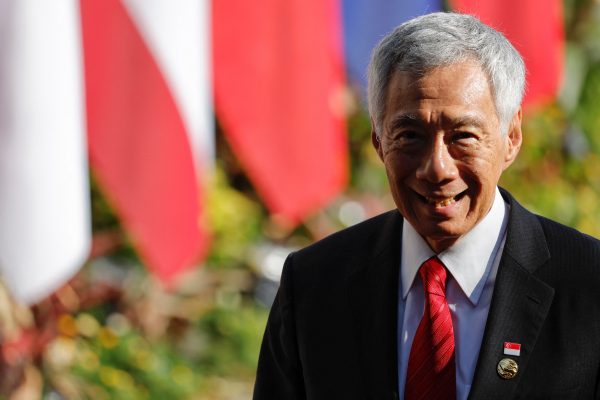Succession is a delicate and potentially violent topic for leaders. In Singapore, succession planning is quite the opposite. It showcases the stability and predictability of the ruling People’s Action Party (PAP). Yet it appears to be an unusually difficult challenge for current Prime Minister Lee Hsien Loong.
After 31 years in power, the first prime minister Lee Kuan Yew announced that the second-generation of PAP cabinet leaders unanimously chose his deputy Goh Chok Tong as his successor. This was despite Lee making it clear that among his three deputies, he preferred Tony Tan over Goh and Ong Teng Cheong. Tan and Ong both later served as president.
The decision over Goh’s successor was even more uneventful. The PAP’s third-generation leaders decided that Lee Hsien Loong, Lee Kuan Yew’s son, would be the new princeling-in-waiting over a working lunch in 2004.
Having been prime minister for almost two decades, Lee has openly discussed his retirement, announcing finance minister Heng Swee Keat was chosen by the fourth generation of PAP cabinet ministers as his deputy in 2019.
But succession was paused when Lee cited the need for stability and delayed stepping down during the COVID-19 pandemic.
Within the year, a stunningly weak electoral win in Heng’s constituency and an opposition Workers’ Party gain in a strategic Group Representation Constituency in the 2020 general election dealt a major blow to Lee’s succession plans. Heng withdrew himself from the successor nomination, citing health concerns. The uneventful orchestration that defined Singapore’s previous transitions was in doubt.
In late 2022, the PAP’s fourth-generation leaders named Deputy Prime Minister and Finance Minister Lawrence Wong as Lee’s second successor. Wong was subsequently appointed Chairman of the Monetary Authority of Singapore and Chairman of the Investment Strategies Committee of Government of Singapore Investment Corporation, Singapore’s largest sovereign wealth fund.
Just when a succession plan was coming into view, Lee’s most challenging hurdle appeared. In July, a slew of scandals sent shockwaves through parliament.
It began when the Corrupt Practices Investigation Bureau opened an investigation into allegations of corruption relating to rentals of state-owned heritage bungalows by Minister for Home Affairs K Shanmugam, and Minister for Foreign Affairs Vivian Balakrishnan. This issue came at a particularly sensitive time, given ordinary Singaporeans are grappling with increasingly expensive house prices. While the allegations were found to be untrue, the investigations soured the PAP’s brand.
On 7 July senior minister Tharman Shanmugaratnam resigned from parliament to run for the Singaporean presidency. While not a scandal, the loss of Tharman was another blow to Lee’s cabinet. On 11 July, Minister for Transport S Iswaran was arrested and released on bail in connection with a corruption investigation by the Corrupt Practices Investigation Bureau. This was the first time a minister was arrested since 1986. Lee instructed Iswaran to step down and take a leave of absence, though retaining his S$8500 monthly salary — a move that attracted considerable attention.
That same day, former speaker of Parliament Tan Chuan Jin issued a public apology for calling opposition Member of Parliament (MP) Jamus Lim a ‘fucking populist’. Beyond unparliamentary language, this undermined Tan’s impartiality and signalled the PAP’s further detachment from the concerns of most Singaporeans. In contrast, Lim advocated for further support for lower-income Singaporeans in his speech. Within the week, Tan resigned from Parliament for a different reason — for having an inappropriate relationship with fellow former PAP MP Cheng Li Hui, who also resigned.
The July scandals add to myriad of known troubles. While each of these issues individually might not carry significant weight, their collective presence casts a shadow over the PAP’s reputation for incorruptibility.
This comes after concerns over the appointment of PAP MP Tin Pei Ling, who sits on the parliamentary committee overseeing the communications and information sector, to head of government relations at Grab, one of the region’s biggest tech giants. There was also PAP MP Christopher de Souza’s guilty charge, and later appeal, for professional misconduct while he was acting for clients.
If Lee’s succession planning relies on stability, the recent volatility in the PAP could affect future elections.
But the extent to which the 2023 presidential election served as a litmus test for the PAP’s popularity was constrained by Tharman’s personal popularity, with a 2016 survey indicating 69 per cent of Singaporeans would back him as prime minister. The same survey revealed only 10 per cent of respondents expressed a preference for Lee’s newest successor, Lawrence Wong. A credible assessment of the PAP’s support might only happen in the next two years, when the scheduled general election is held no later than November 2025.
In his National Day Rally, Lee acknowledged his succession planning was disrupted by COVID-19 and by ‘several controversial issues [that] have drawn Singaporeans’ attention’. His call for trust in the Wong and his PAP team is a particularly tough ask, considering the recent scandals surrounding his team’s highest-ranking members. Lee will need to clean up his party’s act and find a more convincing assurance of integrity than ‘ownself check ownself’.
Kazimier Lim (he/him) is a Sydney-based Public Policy Consultant at an international management consultancy and writes on Asia, international relations and international aviation politics.

